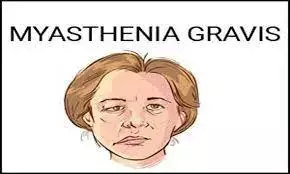- Home
- Medical news & Guidelines
- Anesthesiology
- Cardiology and CTVS
- Critical Care
- Dentistry
- Dermatology
- Diabetes and Endocrinology
- ENT
- Gastroenterology
- Medicine
- Nephrology
- Neurology
- Obstretics-Gynaecology
- Oncology
- Ophthalmology
- Orthopaedics
- Pediatrics-Neonatology
- Psychiatry
- Pulmonology
- Radiology
- Surgery
- Urology
- Laboratory Medicine
- Diet
- Nursing
- Paramedical
- Physiotherapy
- Health news
- Fact Check
- Bone Health Fact Check
- Brain Health Fact Check
- Cancer Related Fact Check
- Child Care Fact Check
- Dental and oral health fact check
- Diabetes and metabolic health fact check
- Diet and Nutrition Fact Check
- Eye and ENT Care Fact Check
- Fitness fact check
- Gut health fact check
- Heart health fact check
- Kidney health fact check
- Medical education fact check
- Men's health fact check
- Respiratory fact check
- Skin and hair care fact check
- Vaccine and Immunization fact check
- Women's health fact check
- AYUSH
- State News
- Andaman and Nicobar Islands
- Andhra Pradesh
- Arunachal Pradesh
- Assam
- Bihar
- Chandigarh
- Chattisgarh
- Dadra and Nagar Haveli
- Daman and Diu
- Delhi
- Goa
- Gujarat
- Haryana
- Himachal Pradesh
- Jammu & Kashmir
- Jharkhand
- Karnataka
- Kerala
- Ladakh
- Lakshadweep
- Madhya Pradesh
- Maharashtra
- Manipur
- Meghalaya
- Mizoram
- Nagaland
- Odisha
- Puducherry
- Punjab
- Rajasthan
- Sikkim
- Tamil Nadu
- Telangana
- Tripura
- Uttar Pradesh
- Uttrakhand
- West Bengal
- Medical Education
- Industry
Ravulizumab effective treatment option for Generalized Myasthenia Gravis

Ravulizumab demonstrated rapid and sustained improvements in both patient- and clinician-reported outcomes in Generalized myasthenia gravis (gMG), according to a recent study published in the NEJM Evidence.
Generalized myasthenia gravis (gMG) is a rare, chronic, and debilitating autoimmune disease. Activation of the complement system by autoantibodies against the postsynaptic acetylcholine receptor (AChR) leads to the destruction of the postsynaptic membrane and disruption of neuromuscular transmission. This trial evaluated ravulizumab, a long-acting inhibitor of terminal complement protein C5, as a treatment for gMG. In this randomized, double-blind, placebo-controlled, multinational trial, we randomly assigned (1:1) patients with anti-AChR antibody-positive gMG to intravenous ravulizumab or placebo for 26 weeks. Patients received a loading dose on day 1, followed by maintenance doses on day 15 and every 8 weeks thereafter. The primary endpoint and first secondary endpoint (change from baseline to week 26 in patient-reported Myasthenia Gravis–Activities of Daily Living [MG-ADL] scale and clinician-reported Quantitative Myasthenia Gravis [QMG] total scores, respectively) were compared between the ravulizumab- and placebo-treated groups.
The results of the study are:
In total, 175 patients were enrolled. Ravulizumab significantly increased the magnitude of mean changes from baseline to week 26 versus placebo in MG-ADL (−3.1 vs. −1.4; P<0.001) and QMG (−2.8 vs. −0.8; P<0.001) total scores.
Improvements in both measures occurred within 1 week of ravulizumab initiation and were sustained through week 26.
QMG total scores improved by 5 points or more in a significantly greater proportion of ravulizumab-treated patients than of those receiving placebo (30.0% vs. 11.3%; P=0.005).
No notable differences in adverse events were observed.
Thus, Ravulizumab demonstrated rapid and sustained improvements in both patient- and clinician-reported outcomes and had a side effect and adverse-event profile that did not limit treatment in adults with anti-AChR antibody-positive gMG. (Funded by Alexion, AstraZeneca Rare Disease; ClinicalTrials.gov number, NCT03920293; EudraCT number, 2018-003243-39.)
Reference:
Terminal Complement Inhibitor Ravulizumab in Generalized Myasthenia Gravis by Tuan Vu, et al. published in the NEJM Evidence
https://evidence.nejm.org/doi/full/10.1056/EVIDoa2100066
Dr. Shravani Dali has completed her BDS from Pravara institute of medical sciences, loni. Following which she extensively worked in the healthcare sector for 2+ years. She has been actively involved in writing blogs in field of health and wellness. Currently she is pursuing her Masters of public health-health administration from Tata institute of social sciences. She can be contacted at editorial@medicaldialogues.in.
Dr Kamal Kant Kohli-MBBS, DTCD- a chest specialist with more than 30 years of practice and a flair for writing clinical articles, Dr Kamal Kant Kohli joined Medical Dialogues as a Chief Editor of Medical News. Besides writing articles, as an editor, he proofreads and verifies all the medical content published on Medical Dialogues including those coming from journals, studies,medical conferences,guidelines etc. Email: drkohli@medicaldialogues.in. Contact no. 011-43720751


